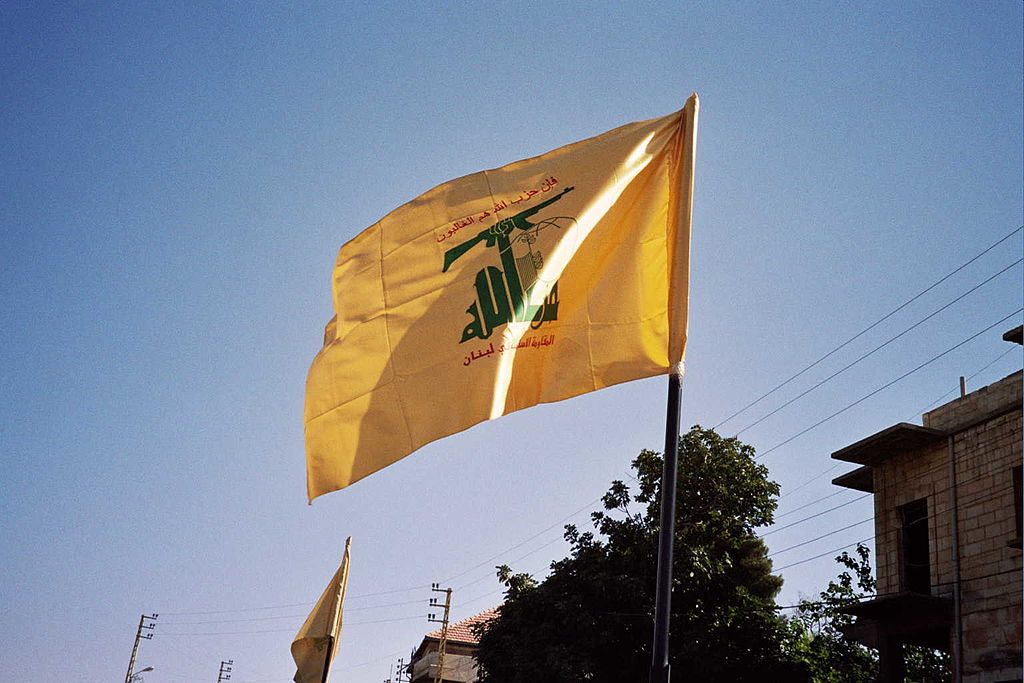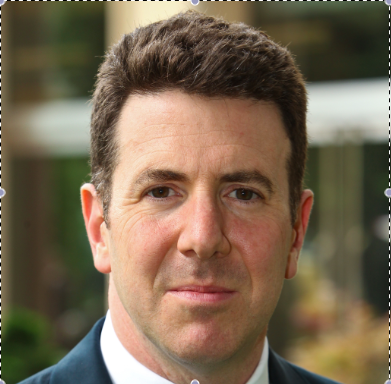Hezbollah, Drugs, and the Obama Administration: A Closer Look at a Damning Politico Piece
An expose in Politico by Josh Meyer entitled “The secret backstory of how the Obama administration let Hezbollah off the hook” makes a damning charge: “In its determination to secure a nuclear deal with Iran, the Obama administration derailed an ambitious law enforcement campaign targeting drug trafficking by the Iranian-backed terrorist group Hezbollah.” Beyond securing a nuclear deal, the article argues, some Obama administration officials—including John Brennan, the CIA director wh

An expose in Politico by Josh Meyer entitled “The secret backstory of how the Obama administration let Hezbollah off the hook” makes a damning charge: “In its determination to secure a nuclear deal with Iran, the Obama administration derailed an ambitious law enforcement campaign targeting drug trafficking by the Iranian-backed terrorist group Hezbollah.” Beyond securing a nuclear deal, the article argues, some Obama administration officials—including John Brennan, the CIA director who had previously served as Obama’s chief counterterrorism adviser—sought “greater assimilation of Hezbollah into Lebanon’s political system,” strengthening the organization’s political side and weakening its military and terrorist wings. To support these dramatic claims, Meyer offers a detailed story that draws heavily on interviews of personnel from the Drug Enforcement Administration (DEA).
Although I think much of the information about Hezbollah is convincing, I find myself skeptical of the broader argument about systematic obstruction of counternarcotics efforts at the senior levels of the Obama national security team. At the same time, however, I believe the story raises several interesting and important points about Hezbollah and broader U.S. policy that deserve a closer look.
The story levies at least five specific charges against the Obama administration, including:
- The Justice Department did not file criminal charges against Hezbollah members because of tacit White House pressure;
- The U.S. government refused to press hard for the extradition of a key Hezbollah weapons supplier in Czech custody, allowing his eventual release;
- The United States allowed “an entire Quds force network” in the United States to function and otherwise did not aggressively target Quds Force members;
- The administration did not target a Lebanese bank linked to drug laundering; and
- The administration stymied the DEA’s effort to go after Hezbollah. Over time, the agency’s task force was denied permission to expand its efforts, and its personnel and resources were steadily drained.
Buried in the piece are several other explosive claims outside the drug arena. For example, the piece claims the CIA declared a “moratorium” on covert operations against Hezbollah because of Iranian pressure.
The Politico piece claims that as a result of the Obama administration’s obstructionism:
- “Multi-ton loads of cocaine” entered the United States;
- Hezbollah procured hundreds of millions of dollars from illegal drug money;
- The United States lost track of various networks and associated conspiracies with adversaries such as Russia, Syria and Venezuela; and
- Drug networks were allowed to flourish and also served as overall logistics hubs. These networks also “procured parts for Iran’s illicit nuclear and ballistic missile programs” smuggled in night-vision goggles and even Bell helicopters.
Meyer’s piece reflects its sources. The DEA comes across as hard-charging and eager to make Hezbollah pay for its crimes. The State Department, the CIA, the Justice Department and the White House are all, in different ways, bad guys who shot down the DEA’s efforts. In some cases, the DEA was able to circumvent them, working with U.S. allies overseas that were more responsive to the agencies objectives than their own government was. But for the most part, elements of the U.S. national security community stymied the DEA and allowed Hezbollah and its allies to escape serious penalties.
The idea of the United States helping Hezbollah, even indirectly, is rather nauseating. Hezbollah has used its military power to bolster the Syrian regime. In addition to being its own pseudo-state within Lebanon, Hezbollah is a skilled terrorist group that has repeatedly attacked Israel with rockets, killed Israeli tourists, and attacked Israeli facilities around the world. Hezbollah also conducted devastating attacks on U.S. targets in Lebanon in the 1980s. It has kidnapped Americans in Lebanon and assisted Iranian operations around the world. And although Hezbollah is not currently seeking to strike the U.S. homeland, this could change—particularly if the United States and Iran squared off over the nuclear program or for another reason. As Magnus Ranstorp, a leading Hezbollah watcher, notes in the article, “they have been casing targets in the U.S. since the late 1990s.”
Assessment
Obama administration officials and some outside observers slammed the piece. Part of the response was to discredit some of the experts the report cites. Katherine Bauer, for example, received criticism because she now works for the Washington Institute for Near East Policy, a pro-Israel think tank. (Israel opposed the Iran deal—and thus Israel’s champions, so the reasoning goes, seek to discredit the deal and the Obama administration.) Such charges, as is usually the case, divert attention from the facts in dispute rather than raise a true problem. The Washington Institute hosts serious and respected analysts and former policymakers. Moreover, Bauer is only one of the officials cited; her position was consistent before she took the job at the Washington Institute; she was a respected career official before leaving government; and she has tremendous expertise on the subject as a whole.
More credible is the critique that the article’s sourcing is one-sided. The article refers to “unspoken pressure to view the task force with skepticism,” which is plausible. But beyond the suspicions of task force members, Meyer cites no particular source to confirm that the administration wanted to be soft on Iran. Amb. Daniel Benjamin, who served as the State Department’s chief counterterrorism officer under Obama, disputed that the Obama administration ever sought to “lighten up counterterrorism pressure on Iran” and also tweeted that the “story is woefully one-sided recitation from DEA, an agency that does great work in some areas but lacks the intel base and experience on Iran. Hearing more from CIA, State, DoJ and Treasury would have put DEA gripes in context.” Former officials from the Treasury Department, the CIA, the Pentagon and other agencies also made similar points, often much more vehemently.
Indeed, the article’s sourcing seems stronger when it comes to classic interagency fighting, rather than White House pressure, as a source of blocking the DEA. It claims that CIA officials blew the cover of DEA agents and that the “intelligence community fundamentally doubted the intel” from DEA. In addition, other intelligence agencies saw the DEA as a bull in their china shop: One noted that the DEA would “disrupt operations we’d been cultivating for years.”
DEA itself came under criticism for the article’s conclusions. Brian O’Toole, who used to work at Treasury and within the intelligence community, argued: “They've based these assessments on classic analytic overreach.” He added that “no one else in the career civil service would agree with them. These weren't politicals at every turn, but seasoned analysts who knew much more than they did.” Andrew Exum, a serious Hezbollah watcher who was also a Pentagon official under Obama, tweeted, “The story made clear @CIA objected to this policy proposal by @DEAHQ, and let me tell you: there has never been a single administration that has deferred — I’m sorry — to the freaking DE freaking A over the CIA on a policy proposal about which CIA feels strongly.”
One might expect those being criticized to push back, but the piece also notes that in many instances, the Obama administration was putting pressure on Iran. For example, the weapons supplier in question was indicted in a U.S. court, as were several other people linked to Hezbollah discussed in the article. As one anonymous Obama administration official noted in the article, “there was a lot of shit we did during the Iran deal negotiations that pissed the Iranians off.” Presumably, if the goal was to lay off the Iranians, the administration should have been working more consistently to win them over.
Finally, it’s noteworthy that the Trump administration has not taken this issue on. Given Trump’s vehement and repeated condemnations of Iran, along with his administration’s constant complaints about the Iran deal and the Obama administration in general, one would expect them to wield accusations like this one as a cudgel. So far, it’s been silence.
In the end, I’m on the skeptical side. It is plausible that with the Iran deal in the background, administration officials sought more evidence before acting against Hezbollah, but that’s a far cry from many of the more expansive claims in this article.
Terrorism and Tradeoffs
Putting aside the truth of the specific allegations, the Politico piece nevertheless raises a set of important questions. Perhaps the most important is one that few dare to ask in a post-9/11 world: How should the United States prioritize counterterrorism relative to other concerns? Pakistan, for example, is a sponsor of the Taliban, a nuclear power, and a potential failed state. Which of these difficult issues should dominate U.S. policy when push comes to shove?
Hezbollah is particularly complex, as its status is interwoven with that of its Iranian patron. Hassan Rouhani’s election as president of Iran in 2013 raised hopes that Tehran might be willing to cut a deal on its nuclear program, as proved to be the case. Iran, of course, wouldn’t give up its program for free, and numerous officials have criticized the Obama administration’s willingness to make economic and other concessions in response. In addition, Iran and Hezbollah have played a major role fighting the Islamic State in Iraq and Syria—and although the United States and Iran often have opposed interests in the region, on this one particular goal, they found themselves on the same side. Iran also held several U.S. prisoners. Should pressure on Hezbollah also have been put on the table?
The article also points to the classic tension between a law enforcement agency and intelligence officials. One of the main DEA sources in the article offers a classic law enforcement perspective: “If they are violating U.S. statutes, why can’t we bring them to justice?” In contrast, as the article notes, intelligence agencies seek to infiltrate and observe, using information to gain more sources rather than prosecutions. Should a particularly satisfying arrest be sacrificed in the name of gaining more information on a dangerous group?
Several critics raised the issue of DEA’s competence and sense of the big picture—a criticism that smaller agencies often face when seeking to take the lead on an important policy issue. Is the DEA the right agency to lead policy against Hezbollah? More broadly, when is it right for DEA to be the lead agency?
Similarly, intelligence operations and prosecutions often conflict with broader diplomatic goals. The Obama administration, according to the article, feared that going after Lebanon’s banks involved in money-laundering would destabilize the country and that arrests in general would create a backlash. Lebanon is always fragile, but with hundreds of thousands of Syrian refugees now in the country and the Islamic State next door, many analysts feared for its stability. How vulnerable is Lebanon, and how much should this matter?
Critics of the Obama administration might point out that the United States conducts aggressive operations against the Islamic State and al-Qaeda on almost a daily basis, and that in many ways, Hezbollah is a more dangerous foe. But in what ways is Hezbollah different, and how should this shape U.S. counterterrorism policy? In particular, is a more moderate Hezbollah likely or even possible?
In the coming days and weeks, I will focus on at least some of these issues, often inviting other experts in the field with different perspectives to weigh in.
EDITOR'S NOTE: A previous version of this post incorrectly referred to the Drug Enforcement Administration as the Drug Enforcement Agency.


.jpg?sfvrsn=407c2736_6)


